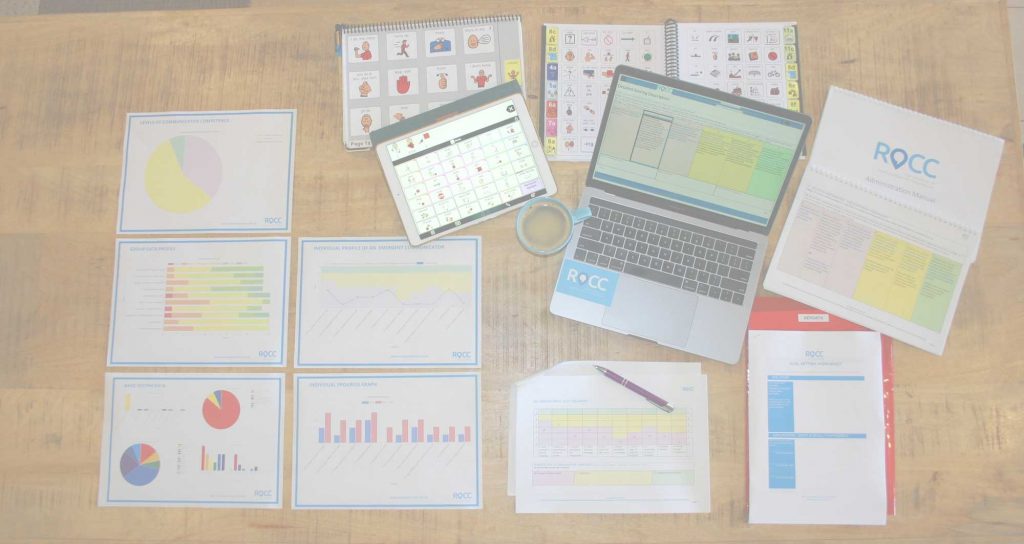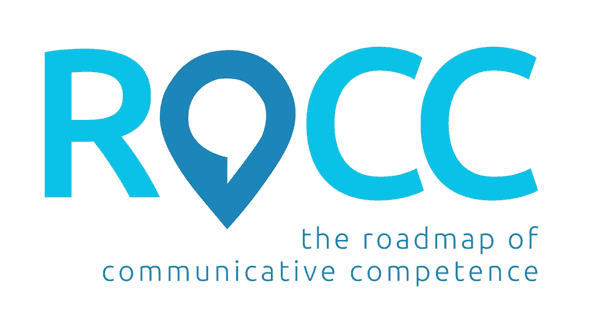
The ROCC is a bigger picture assessment tool
The ROCC assessment tool has been designed to provide more of a bigger picture, rather than the fine detail. The idea is that the ROCC will help us figure out which areas we might need to focus on – suggesting the focus of a more detailed assessment in specific areas, if needed. This really helps to prioritise access to therapy providers and also to avoid too much time spent on formal assessment before we start providing the individual with opportunities to learn.
The ROCC was developed to be used as a long term individual profile or as an organisational, whole school or classroom approach to achieving outcomes for communication. It is also a way to assess all students or clients within your organisation – whether they use speech, sign or symbols.
Designed to be used alongside more targeted assessments
The ROCC is not intended to replace more specific and targeted individual communication assessments. In fact you could think of it more as the predecessor to these more targeted assessments. It provides an overview to help you make more informed decisions about which additional specific and targeted assessments you may need.
If a participant needs extra support around domain 6 (their complexity of language), then a language sample may be a good option, or in domain 7 (range of functions), you may want to review their pragmatic development in more detail. If intelligibility is the main concern, then you may want to explore speech functioning, or refer to an OT if they are using aided Augmentative and Alternative Communication and need support around their movements for communication.
Example of more specific individual assessments
You may be familiar with the Pragmatics Profile or the Communication Matrix. These are both great tools and we use them ourselves! The biggest difference is that these are much more specific tools for looking at a person’s range of communication functions and early expressive language. This correlates mostly to two of the ten domains covered by the ROCC (Domain 6, complexity of messages and Domain 7, range of pragmatic functions). If these domains are identified on the ROCC as needing attention, then these assessments (or similar) are a great option to gain more detailed information.
The ROCC also covers 8 other domains that contribute to communication competence, and can help to identify other areas that may be impacting on successful communication. For example, whether or not the student has access to a comprehensive system, intelligibility of their message, success of initiation, their understanding of the system as their voice, socialisation and strategic competence.
It is still relevant to use both of these assessments, along with others that provide more specific information, when it seems most appropriate to delve further into these areas. For example, a language sample or social network assessment may be an appropriate next step depending on the individual you are assessing.
So the bottom line is…
The ROCC assessment will help you to see long term communication trends in an individual, as well as give you insights into communication progress in your organisation.
The ROCC then gives you insights about what further specific interventions or assessments might be suitable for each particular individual – allowing you to prioritise more specific assessments if required.
We hope this helps to clarify how the ROCC can be used together with other assessments to help achieve communication outcomes! If you have any questions, please contact us
